Amyloid beta
Recent articles
Everything, everywhere, all at once: Inside the chaos of Alzheimer’s disease
To truly understand Alzheimer’s disease, we may need to take a systems approach, in which inflammation, vascular injury, impaired glucose metabolism and other factors interact in complex ways.
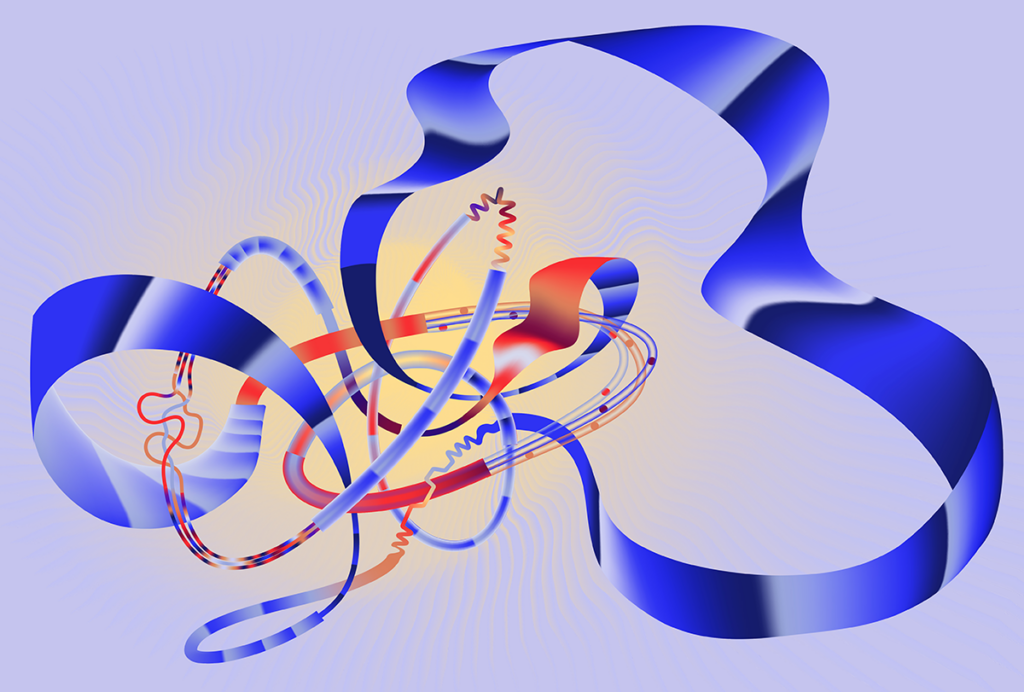
Everything, everywhere, all at once: Inside the chaos of Alzheimer’s disease
To truly understand Alzheimer’s disease, we may need to take a systems approach, in which inflammation, vascular injury, impaired glucose metabolism and other factors interact in complex ways.
Plaque levels differ in popular Alzheimer’s mouse model depending on which parent’s variants are passed down
5XFAD model mice that inherit two disease-related genes from their fathers have double the plaques seen in those with maternal inheritance, a new study shows.
Plaque levels differ in popular Alzheimer’s mouse model depending on which parent’s variants are passed down
5XFAD model mice that inherit two disease-related genes from their fathers have double the plaques seen in those with maternal inheritance, a new study shows.
Early trajectory of Alzheimer’s tracked in single-cell brain atlases
Inflammation in glia and the loss of certain inhibitory cells may kick off a disease cascade decades before diagnosis.
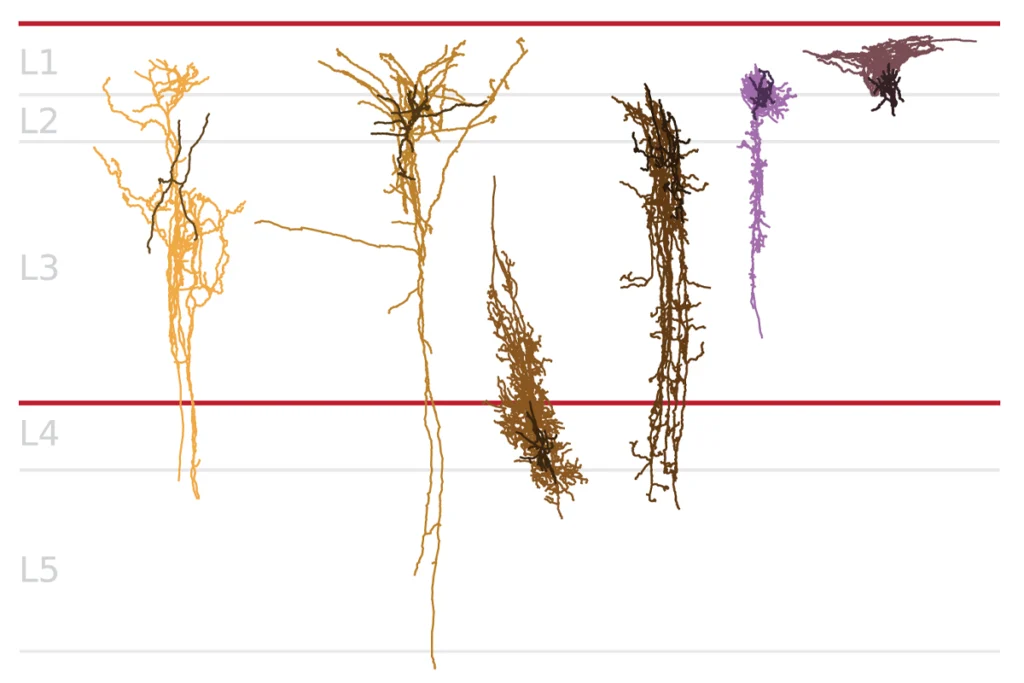
Early trajectory of Alzheimer’s tracked in single-cell brain atlases
Inflammation in glia and the loss of certain inhibitory cells may kick off a disease cascade decades before diagnosis.
Skeptics challenge claims of Alzheimer’s disease transmission via growth hormone
Some people who received cadaver-derived human growth hormone may not have Alzheimer’s as previously suggested, according to a new Perspective article.
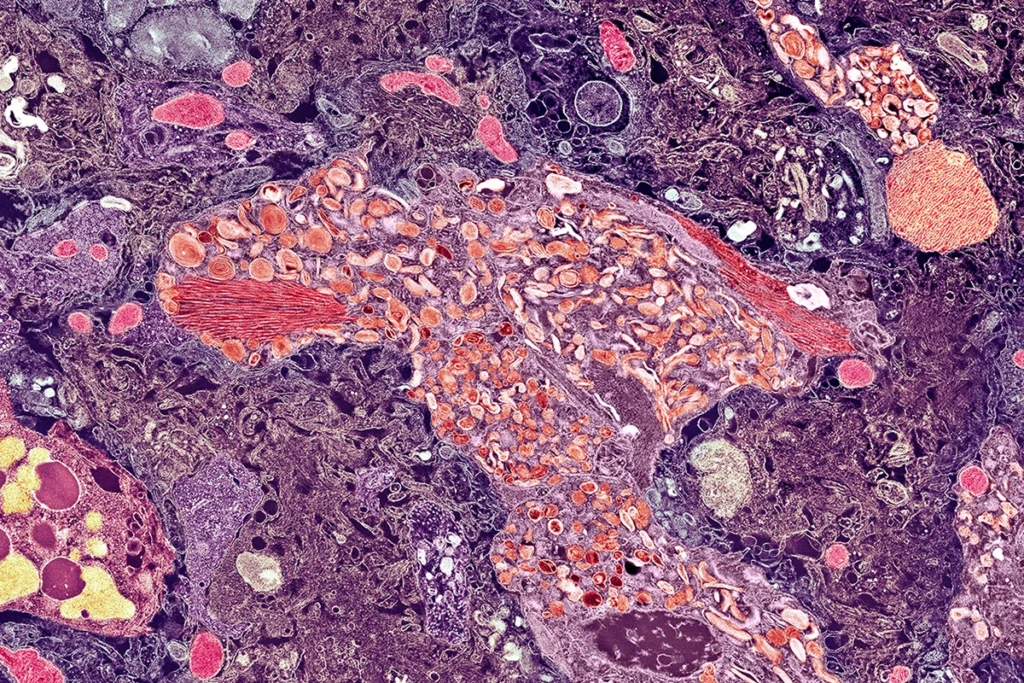
Skeptics challenge claims of Alzheimer’s disease transmission via growth hormone
Some people who received cadaver-derived human growth hormone may not have Alzheimer’s as previously suggested, according to a new Perspective article.
Putting a bright idea to the test
A surprising wave of findings in mice suggests that light and sound flickering at 40 hertz clears the brain of Alzheimer’s-disease-linked plaques. Several companies are hoping to prove it works in people.
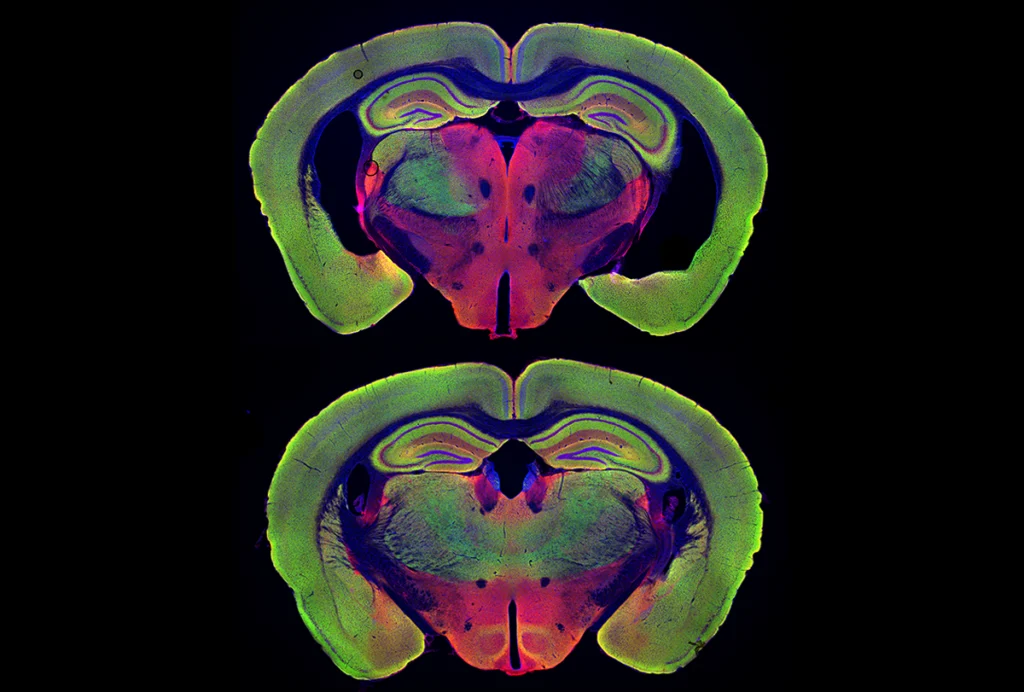
Putting a bright idea to the test
A surprising wave of findings in mice suggests that light and sound flickering at 40 hertz clears the brain of Alzheimer’s-disease-linked plaques. Several companies are hoping to prove it works in people.
Reviving ‘inside-out’ hypothesis of amyloid beta to explain Alzheimer’s mysteries
New research is resurfacing old ideas about where the protein forms the disease’s hallmark plaques.
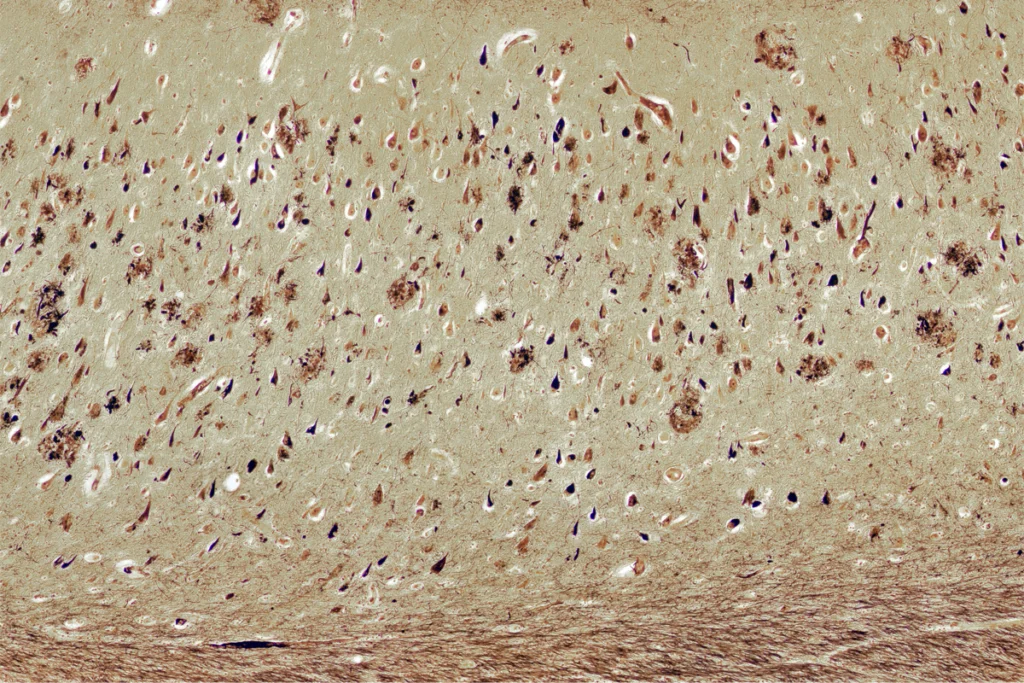
Reviving ‘inside-out’ hypothesis of amyloid beta to explain Alzheimer’s mysteries
New research is resurfacing old ideas about where the protein forms the disease’s hallmark plaques.
How inbreeding almost tanked an up-and-coming model of Alzheimer’s disease
But new genetic analyses and behavioral assays have made the Chilean degu a viable model again, researchers say.
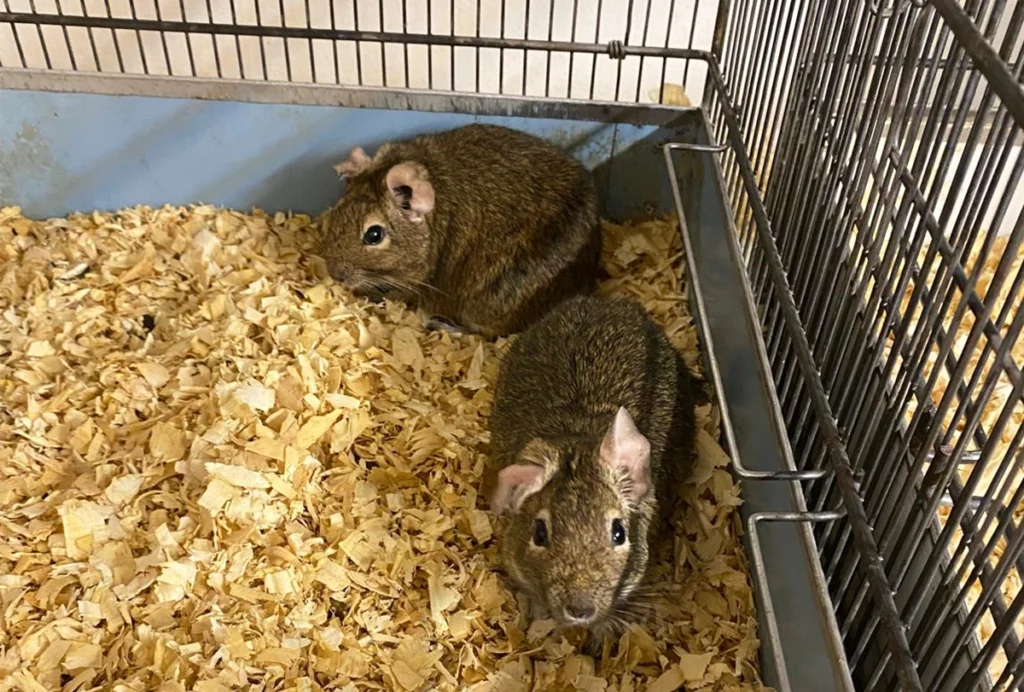
How inbreeding almost tanked an up-and-coming model of Alzheimer’s disease
But new genetic analyses and behavioral assays have made the Chilean degu a viable model again, researchers say.
Carol Jennings, whose family’s genetics informed amyloid cascade hypothesis, dies at 70
Her advocacy work aided the discovery of a rare inherited form of early-onset Alzheimer’s disease and helped connect affected people with researchers.
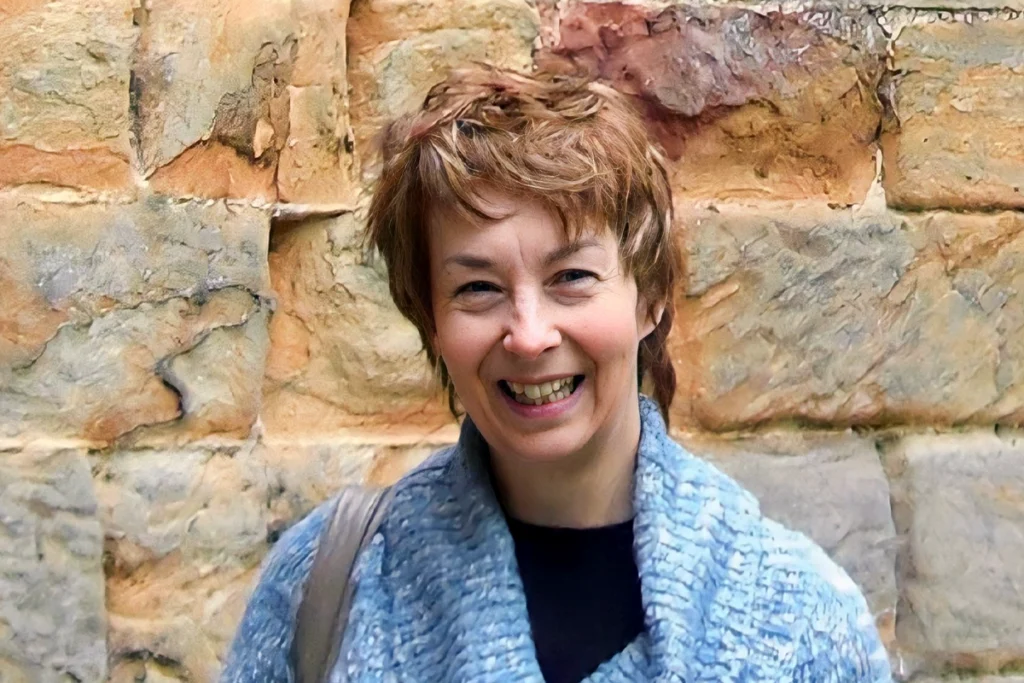
Carol Jennings, whose family’s genetics informed amyloid cascade hypothesis, dies at 70
Her advocacy work aided the discovery of a rare inherited form of early-onset Alzheimer’s disease and helped connect affected people with researchers.
Explore more from The Transmitter
Post-infection immune conflict alters fetal development in some male mice
The immune-conflict between dam and fetus could help explain sex differences in neurodevelopmental conditions.

Post-infection immune conflict alters fetal development in some male mice
The immune-conflict between dam and fetus could help explain sex differences in neurodevelopmental conditions.
Three ecological psychologists on the right and wrong ways to use the field’s principles in neuroscience
Matthieu de Wit, Luis H. Favela and Vicente Raja weigh in on the recent trend of neuroscientists importing concepts from ecological psychology, the study of how an organism’s interactions with its environment explain perception and action.
Three ecological psychologists on the right and wrong ways to use the field’s principles in neuroscience
Matthieu de Wit, Luis H. Favela and Vicente Raja weigh in on the recent trend of neuroscientists importing concepts from ecological psychology, the study of how an organism’s interactions with its environment explain perception and action.
Is there a neuroscientist in the House?
Sam Wang, a neuroscientist running for the U.S. House of Representatives, has been considering American democracy for decades.

Is there a neuroscientist in the House?
Sam Wang, a neuroscientist running for the U.S. House of Representatives, has been considering American democracy for decades.